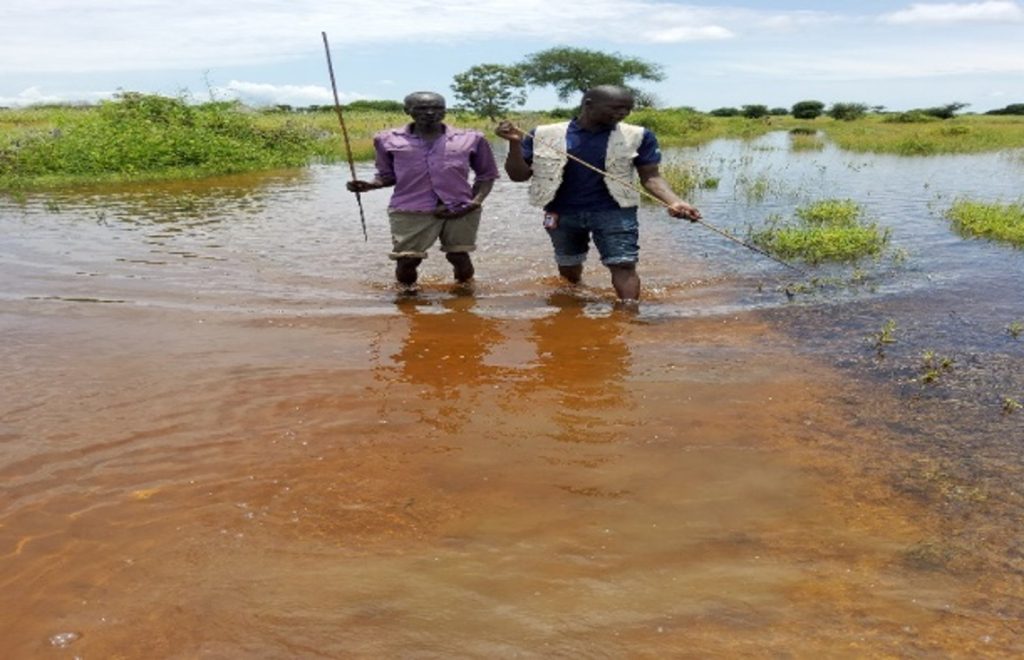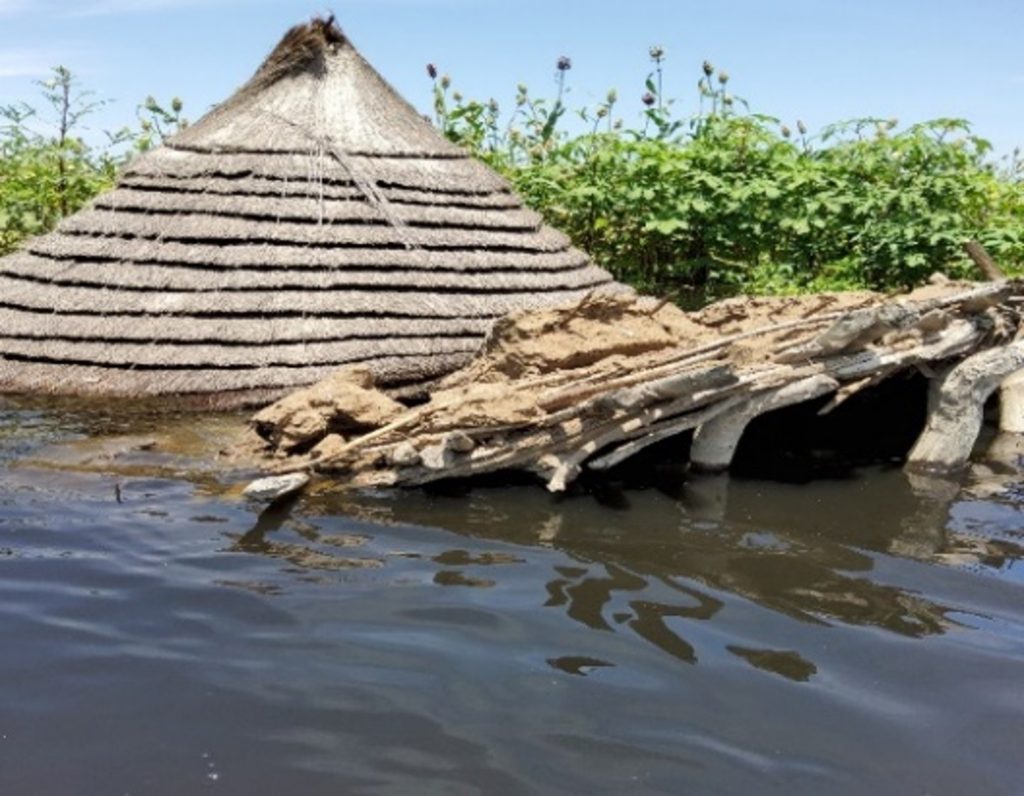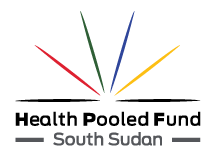Extending Health Services to Vulnerable Communities through Boma Health Workers

15 November 2021
South Sudan is experiencing severe flooding this year, with many areas in the country affected. One of the most affected areas is Agaal Boma of Akon South Payam in Gogrial West County of Warrap state. The flood resulted in displacement of more than 922 households. An interagency assessment conducted inJuly 2021 found that the displaced people are in a dire need of humanitarian assistance.
With the setup of the Boma Health Initiative (BHI) at the community level, often the Boma Health Workers (BHWs) are displaced with their community members and end up being the main source of medical help especially with malaria, diarrhoea and pneumonia cases which spike during flooding.
Gogrial West County in Warrap state was adversely affected by flooding. Agaal Boma in Akon South Payam was one of the bomas that were submerged forcing the community members to move to higher grounds. James Majok is a BHW in Agaal Boma – he was displaced with his community members after heavy rains in July 2021.
“The rains started in July 2021 and went on for two weeks leaving the whole area flooded. Our crops were destroyed, shelters sunk, and our livelihoods uprooted,” explained Majok.
With the community displaced, in makeshift shelters, and with poor sanitation – cases of malaria and diarrhoea rose.
“The new living conditions took a huge toll on everyone especially children who were now staying in open spaces. Cases of pneumonia, malaria and diarrhoea increases in my Boma. To further exacerbate the situation, we were cut of from the health facilities,” said Majok.
“Before the floods, I had been treating children who were suffering from malaria, pneumonia, and diarrhoea. I also coordinated outreaches for immunisation targeting children who are due, and advised the mothers to attend their antenatal clinic visits.”

Majok decided to use his skills and training to try alleviate some of the suffering he was witnessing in his community as well as host community. He decided to give health education on how to prevent diseases focusing on malaria, pneumonia and diarrhoea which were widespread. “I organized two health education session in a week with community members who are displaced and the host community on how to protect themselves from these diseases.”
“I was so sad that my community was going through this catastrophe but am proud to be able to be of service to them. The most common disease I have been treating is malaria using the medicines that I received from Health Pooled Fund (HPF). When I run low on medicines, I call up on the County Health Department and GOAL South Sudan (HPF implementing partner in Lot 18) to replenish enough stock of antimalaria for me to help this people.”
About Health Pooled Fund Boma Health Initiative
South Sudan is still plagued by numerous health challenges that affect access to health services. To address some of these challenges, HPF is working with the Ministry of Health to execute the BHI programme and improve access to essential health services. The BHI is also designed to standardise the package of community health services, strengthen linkages between communities and health facilities, and improve community ownership and governance of health services.
During the reporting quarter between July to September 2021, BHWs provided child health, maternal health services in all the 55 HPF supported counties. The activities implemented included treatment of uncomplicated malaria, pneumonia, and diarrhoea for children under five years, routine immunisation defaulter tracing and referrals for children under one year as well as health education and promotion.
Boma BHWs provided 459,473 treatments to children under five for uncomplicated malaria (239,120), pneumonia (126,479) and diarrhoea (93,874). A total of 28,215 children under-one were identified as immunisation defaulters, and 26,429 were referred for immunisation. Additionally, BHWs provided family health sessions to a total of 664,891 individuals of whom 255,840 individuals were reached with child health sessions, 222,020 with nutrition sessions and 187,031 with maternal health sessions.
